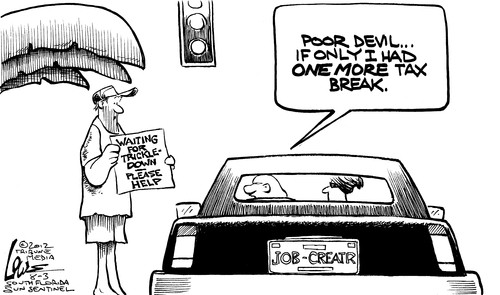Can I Take a Tax Deduction for a Bad Investment
Post on: 20 Июнь, 2015 No Comment

If you are an investor, it is likely that at some point you have made an investment that went bad.
The IRS won’t give you back the money you lost, but Uncle Sam will let you take a deduction for the loss. But there some rules you must know.
- You can’t take an investment until the year the investment becomes worthless, so you’ll have to show that the stock had value at the beginning of the year, but not at the end of the year. If you bought stock in a company that went bankrupt, until the bankruptcy is discharged you might not know whether you can collect anything, so you get no deduction until then.
- You can deduct losses on the sale of securities. If you believe that the stock won’t ever pay off, but you can’t prove it is worthless, sell it on the open market for a few pennies or a dollar to nail down your deduction.
- If you can’t sell the security, you can abandon it. You do that by giving up all rights in the security and not receiving anything in return.
- If you learn your investment became worthless in a prior year, file an amended tax return for that year to claim a refund. Though usually you have just three years to file an amended return, in the case of worthless investments you have up to seven years from the date your original return was due to claim a deduction.
- You report the loss on Schedule D of your tax return, and list it as though it were an asset sold on the last day of the year. TurboTax easily guides you through the interview and puts your tax information on the appropriate forms so you can take this deduction.
You are also entitled to deductions on your tax return for ongoing expenses in connection with your investments. These are listed on Schedule A of your return as miscellaneous deductions and are deductible to the extent they exceed 2% of your adjusted gross income. Here are a few of the investment expenses that qualify for deduction:
Investment advice. If you pay a fee to have your investments managed, or consult periodically with an investment advisor or accountant, those fees are deductible. That doesn’t include commissions that you pay to buy or sell a security, though. Commissions are added to the cost basis of the security and reduce the gain when you sell the asset.
Publications. If you are an active investor and subscribe to investment magazines, newspapers and newsletters, the costs of those publications are deductible.
Investment interest. If you have borrowed on margin or against other assets such as your home to invest in stocks or bonds, you may be able to claim a deduction for the interest you pay each year. Your deduction is limited to the amount of investment income you have for the year, which includes interest and dividends. Any investment interest expense you can’t use this year can be carried over to future years.
Other investment costs. You can deduct safe deposit box rental fees you pay to safekeep your stock certificates or other investment documents. You can also deduct IRA and retirement account fees, if you pay them out-of-pocket rather than having them deducted from your retirement account.














